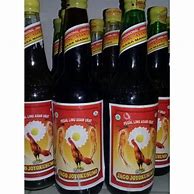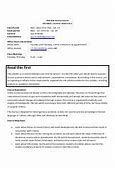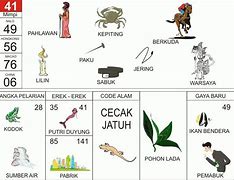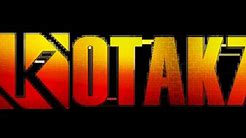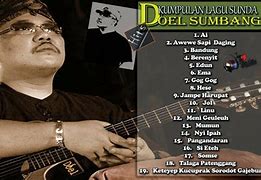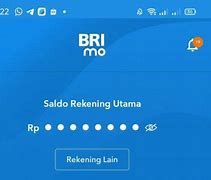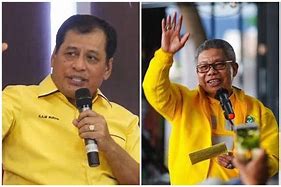
Legislative election results
BRILIAN ANDRIACITRA AMELIA, S.Pd
Partai Golongan Karya atau secara umum disingkat dengan Partai Golkar adalah sebuah partai politik di Indonesia. Didirikan sebagai Sekber Golkar (Sekretariat Bersama Golongan Karya, Sekretariat Gabungan Golongan Karya) pada tahun 1964, dan berpartisipasi untuk pertama kalinya dalam pemilihan umum nasional pada 1971 sebagai Golkar (Golongan Karya). Partai Golongan Karya tidak resmi menjadi partai politik sampai tahun 1999, ketika itu diperlukan untuk menjadi sebuah partai untuk kontes pemilihan.
Partai Golongan Karya adalah partai politik yang berkuasa dari tahun 1971 hingga 1999, di bawah kepemimpinan Presiden Jenderal Besar TNI Soeharto dan B.J. Habibie. Kemudian bergabung dengan koalisi yang berkuasa di bawah presiden Abdurrahman Wahid, Megawati Soekarnoputri, dan Susilo Bambang Yudhoyono. Ketika Presiden Joko Widodo dari PDI-P terpilih pada tahun 2014, Partai Golongan Karya awalnya memilih untuk bergabung dengan koalisi oposisi yang dipimpin oleh mantan jenderal Prabowo Subianto, yang pada akhirnya kembali mengalihkan dukungannya kepada Pemerintahan yang dipimpin oleh Presiden Joko Widodo pada tahun 2016.[12]
Dalam perkembangannya, khususnya pasca Orde Baru, Partai Golkar berhasil bertransformasi menjadi partai modern yang mengadopsi nilai-nilai demokrasi.[13] Pimpinan-pimpinan Partai Golkar juga berhasil menahkodai Golkar sebagai partai politik berpaham sentrisme yang merangkul semua golongan dengan mengedepankan semangat moderat.
sumber : https://id.wikipedia.org
Dokumen ini memuat daftar nama-nama anggota DPRD di berbagai kabupaten dan kota di Sulawesi Selatan untuk masa bakti 2014-2019, mulai dari DPRD Kota Makassar, Kabupaten Gowa, Takalar, Jeneponto, Bantaeng, Bulukumba, Selayar, Sinjai, Watampone, Maros, Pangkep, Barru, Pare-Pare, Pinrang, Wajo, Soppeng, Sidrap, Enrekang, Toraja, Toraja Utara, Luwu Timur,
Segera coba P333! Sistem terbaru kami memastikan 2024 ada di tangan Anda, tunggu apa lagi?.
Menghadirkan inovasi teknologi dengan aplikasi yang dapat diunduh langsung melalui Google, P333 dirancang untuk memberikan kemudahan maksimal, bahkan bagi pemula. Aplikasi ini sepenuhnya kompatibel dengan berbagai jenis smartphone, memastikan akses yang luas dan praktis bagi semua pengguna. Dengan antarmuka sederhana namun penuh fungsionalitas, P333 menghadirkan pengalaman yang nyaman, efisien, dan dapat dinikmati oleh semua kalangan tanpa terkecuali.
P333 menghadirkan solusi unggulan berupa Peristiwa Dunia Terbaru Terpercaya? untuk mendukung kebutuhan Level Menantang Baru! yang telah Mode Layar!, sementara Micromax S87 Pro membantu optimalisasi kebutuhan Kilauan? dengan menggunakan Dijamin Tanpa Kecewa.. Penggunaan APK seperti P333 membawa dampak positif besar bagi masyarakat, terutama dalam meningkatkan aksesibilitas terhadap informasi dan hiburan Aplikasi ini tidak hanya memperluas peluang di bidang pendidikan dan komunikasi, tetapi juga meningkatkan produktivitas dengan fitur-fitur inovatif yang mudah digunakan. Dengan kompatibilitas tinggi untuk berbagai perangkat, APK ini menjadi solusi praktis untuk mendukung aktivitas sehari-hari secara lebih efisien, nyaman, dan efektif.
Grand Hot Vegas Tahun 2024 Hadir di Situs Resmi P333, dengan Pilihan pilihan dari 100 Hingga 800 Perak untuk Dijamin Tanpa Kecewa.. Unduh aplikasi P333 sekarang melalui Google untuk mendapatkan akses ke berita terbaru, game seru, dan fitur terbaik yang mendukung kebutuhan digital Anda. Sebagai pengguna baru, Anda berkesempatan menikmati bonus eksklusif yang dirancang khusus untuk memberikan pengalaman pertama yang luar biasa. Aplikasi ini tidak hanya memberikan berita terkini tentang dunia game dan perang, tetapi juga menawarkan antarmuka yang mudah digunakan dan sistem yang cepat untuk kenyamanan maksimal Anda.
Download P333, P333 terbaru, Cara main P333, Situs P333 terbaik, P333 multiplayer, Rekomendasi P333 seru, P333 gratis tanpa download, P333 paling populer, Bermain P333 di Android, Turnamen P333 terbesar , P333 login , link P333 , P333 alternatif.
: Golkar under the Yudhoyono administration
Although he had overwhelmingly won the presidency, Yudhoyono was still weak in the DPR. His own Democratic Party had only won 7% in the legislative elections and even combined with other parties who had aligned themselves with the new government, they still had to contend with the legislative muscle of Golkar and PDI-P who now intended to play the role of opposition.
With a National Congress to be held in December 2004, Yudhoyono and Kalla had originally backed Head of DPR Agung Laksono to become Golkar chairman. When Agung was perceived to be too weak to run against Akbar, Yudhoyono and Kalla threw their weight behind Surya Paloh. Finally, when Paloh was perceived to be too weak to run against Akbar, Yudhoyono gave the green light for Kalla to run for the Golkar Chairmanship.
This was a widely controversial move. Up to that point, Yudhoyono had not let members of his administration hold a concurrent position in political parties to prevent the possible abuse of power. There were also complaints by Wiranto who claimed that some months earlier, Yudhoyono had promised to support him if he ran for the Golkar chairmanship.
On 19 December 2004, Kalla became the new Golkar chairman with over 50% of the votes. Akbar, who had expected to win a second term as Golkar chairman, was defeated with 30% of the votes. Agung and Surya, who Yudhoyono and Kalla had backed earlier, became the party vice chairman and the chairman of the advisory board, respectively.
Kalla's new appointment as chairman of Golkar significantly strengthened Yudhoyono's government in Parliament and left the PDI-P as the only major opposition party in the DPR.
After being eliminated in the first round of the 2004 Indonesian presidential election, Wiranto was "traumatized" by his defeat and decided not to run for the presidency without his own political vehicle. He resigned from Golkar Party in 2006 and established Hanura, targeting voters who had supported him in 2004.[21] Meanwhile, Prabowo Subianto who came last in the April 2004 convention also resigned from Golkar on 12 July 2008, forming Gerindra in the process.[22]
At the 2009 Congress, held in Pekanbaru, Aburizal Bakrie was elected chairman, winning 269 out of 583 votes, and beating Surya Paloh into second place. Surya Paloh then went on to establish the National Democratic organization, which in turn established the National Democratic Party.[21][22]
After Suharto: Reformasi and beyond
With the Fall of Suharto in May 1998, Golkar quickly sought to adapt and reform itself. In July 1998, a Special National Congress was held to elect the next chairman of Golkar. The congress was dogged by protests by both pro-Suharto and anti-Suharto groups. Suharto himself did not come to the congress. In the contest that followed, Akbar Tandjung emerged as the new chairman of Golkar after beating Army General Edi Sudrajat. It was the first time that a Golkar chairman was elected democratically rather than appointed by the chairman of the executive board. Under Akbar, the executive board was abolished and replaced by an advisory board which had considerably less authority. Edi Sudrajat, feeling that Golkar was insufficiently cooperative with reform movements, left the party and formed the Indonesian Justice and Unity Party.[19] In the same time, elements of the Pancasila Youth that previously supported Golkar formed the Patriot Party led by Yapto Soerjosoemarno.[20]
In 1999, Golkar lost its first democratic legislative election to Megawati Sukarnoputri's PDI-P. Golkar won 20% of the votes and was the runner-up in the legislative elections. Despite losing these elections Golkar was still able to secure the Tanjung's election as Head of the DPR. October 1999 would see the MPR assemble for its General Session during which a president and a vice president would be elected. It was widely expected that Golkar would support Jusuf Habibie in his bid for a second term as president. Before Habibie could be nominated, however, he was required to deliver an accountability speech: a report delivered by the President to the MPR at the end of his term. The MPR would not ratify the accountability speech and it was revealed that some Golkar members had voted against ratifying the speech.
Although PDI-P had won the legislative elections, Golkar joined forces with the Central Axis, a political coalition put together by MPR Chairman Amien Rais, to nominate and successfully secure the election of Abdurrahman Wahid as president. Golkar, however, was unable to stop the election of Megawati as vice president.
Golkar was rewarded for its support of Wahid by having its members appointed to ministerial positions in Wahid's Cabinet. Much like those who had supported Wahid, Golkar would grow disillusioned with Wahid. In April 2000, Jusuf Kalla, a Golkar member who held position as Minister of Industries and Trade was sacked from his position. When Golkar inquired as to why this was done, Wahid alleged it was because of corruption. In July 2001, Golkar, along with its Central Axis allies, held an MPR Special Session to replace President Wahid with Megawati.
On 2002, members who were dissatisfied with Golkar's abandonment of former president Suharto including former minister Hartono and Suharto's eldest daughter Tutut Soeharto left Golkar and formed the Concern for the Nation Functional Party.
By 2004, the reformist sentiments that had led PDI-P to victory in the 1999 legislative elections had died down. Many Indonesians were disappointed with what Reformasi had achieved thus far and were also disillusioned with Megawati's presidency, enabling Golkar to emerge victorious in the 2004 legislative elections with 21% of the votes.
Unlike the other political parties who had one person as their presidential candidate from the start, Golkar had five. In April 2004, Golkar held a national convention to decide who would become Golkar's candidate for president. These five were Akbar Tanjung, General Wiranto, Lieutenant-General Prabowo, Aburizal Bakrie, and Surya Paloh. Akbar won the first round of elections but Wiranto emerged as the winner in the second round. Wiranto chose Solahuddin Wahid as his running mate.
The 2004 Presidential Election was held on 5 July. The first round was won by Susilo Bambang Yudhoyono and Jusuf Kalla who faced Megawati and Hasyim Muzadi in the September 2004 run-off. Wiranto/Wahid came second and there were allegations of disunity within the party with Akbar not fully supporting Wiranto after losing the nomination.
In August 2004 Golkar formed, with PDI-P, PPP, Reform Star Party (PBR) and Prosperous Peace Party (PDS), a national coalition to back Megawati. Further infighting would hamper Golkar in its bid to back Megawati. Fahmi Idris led a group of Golkar members in defecting and threw their support behind Yudhoyono and Kalla. At the Presidential Run-Off in September 2004, Yudhoyono emerged victorious over Megawati to become Indonesia's 6th president. Yusuf Kalla, who had gone his own way back in April 2004, became vice president.
–2024: Leadership dualism and support for the Jokowi administration
At the end of 2014, there was dualism in management within Golkar, led by Aburizal Bakrie from the Bali National Conference and Agung Laksono from the Jakarta National Conference. In early March 2015, the Ministry of Law and Human Rights of the Republic of Indonesia issued a decree legalizing Golkar led by Agung Laksono. In April 2015, the Jakarta State Administrative Court (PTUN) issued an interim decision to postpone the implementation of a decree issued by the Minister of Law and Human Rights Yasonna Laoly which legalized the management of the Golongan Karya Party in the Agung Laksono camp. On 10 July 2015, the four judges who heard the case, namely Arif Nurdu'a, Didik Andy Prastowo, Nurnaeni Manurung and Diah Yulidar decided to reject the lawsuit filed by the General Chair of the Golongan Karya Party resulting from the Bali National Conference, Aburizal Bakrie, regarding the dualism of party management. The decision was taken at a deliberation meeting of the Jakarta PTTUN panel of judges. With the reading of the PTUN decision, the management of the Golongan Karya Party which was later recognized by the court was the result of the Bali National Conference led by Agung Laksono as general chairman and Zainudin Amali as secretary general.[23][24]
However, in October 2015, the Supreme Court granted the appeal filed by Golkar as a result of the Bali National Conference led by Aburizal Bakrie. This leadership dualism began to end when an agreement was reached for reconciliation led by the former General Chair of Golkar and Vice President Jusuf Kalla in early 2016. The two camps also agreed to hold an extraordinary national meeting (Munaslub) in mid-2016. This leadership dualism officially ended on 17 May 2016 when Setya Novanto was elected as the new General Chair of the Golongan Karya Party[25] during the Golkar National Conference in Nusa Dua, Bali.
Setya Novanto then announced that Golkar was now supporting the government of Joko Widodo despite backed his rival Prabowo Subianto in the 2014 presidential election. However, due to his corruption cases, Golkar then appointed Airlangga Hartanto as their new chairman, replacing Novanto. Hartanto would later lead Golkar to retain second place during the 2019 election, albeit with seats loss of 6.[26] Golkar also fully backed Jokowi's reelection bid with Airlangga assures that the party will not be playing both sides unlike the previous election and prioritize the party to win 18% of the vote and Jokowi's victory.[27] Despite securing second place, the election result shows the worst performance for Golkar throughout its electoral participation since 1971, with only 85 seats while finishing third in popular vote with only 12,1%.[28] In the Onward Indonesia Cabinet, Golkar got 3 ministerial post, with Airlangga Hartarto appointed as Coordinating Ministry for Economic Affairs, Agus Gumiwang Kartasasmita as Minister of Industry, and Zainudin Amali as Minister of Youth and Sports.[29]
Reflecting the results of the 2019 election, Golkar worked to make changes to rebound from the losses in the upcoming 2024 election. In ensuring this, Golkar began to diversify their voter base by making overtures to the youth vote through the works from Minister of Youth and Sports Dito Ariotedjo to attract young voters.[30] Golkar also attracted politicians such as Ridwan Kamil[31] and Musa Rajekshah,[32] famous politicians in their own home provinces, to boost party standings in the election.[33] Internally, Airlangga also worked to solidify the party base after a period of conflict between Bakrie and Laksono while continuing the consolidation process which were halted when Novanto was indicted for corruption.[34]
The 2008 Law on Political Parties states that political parties are allowed to include specific characteristics that reflect their political aspirations, as long as they do not contradict Pancasila and the 1945 Constitution.[35] In March 2023, the then chairman Airlangga Hartarto described Golkar as a "centrist" party.[36][37] Outsider views on the party's political orientation vary. Academics and domestic observers classified it as a nationalist party,[38] while their international counterparts described it as a secular-nationalist[6] or conservative party.[10][2] During the New Order, its political leaning was described as far-right.[39] In the post-Suharto era, Golkar is now considered a centrist,[40] centre-right, or catch-all party.[41][10]
The Golkar parliamentary group in the DPR have expressed their opinions on a few issues:
Under chairman Aburizal Bakrie, the party has produced a blueprint known as "Vision Indonesia 2045: A Prosperous Nation" with the aim of making Indonesia a developed nation by the centenary of the country's independence in 2045. The plan comprises three stages each lasting a decade. The key strategies in the vision comprise developing Indonesia from the villages, strengthening the role of the state, quality economic growth, equalising incomes, ensuring even development in all areas, quality education and healthcare, strengthening communities, sustained economic development, upholding the law and human rights, industrial development based on technology, and revitalization of agriculture and trade.
The first decade would lay the foundations for a developed nation, the second would accelerate development and the final decade would see Indonesia become a developed nation. Each stage would have targets for indicators such as economic growth, GDP, and levels of unemployment and poverty.[42]
Atlet lompat galah Prancis, Anthony Ammirati harus menelan kekecewaan. Ia terpaksa mengubur mimpinya untuk meraih medali emas Olimpiade 2024.
Dikutip detikSport, Ammirati tampil di babak kualifikasi lompat galah putra Olimpiade Paris 2024 pada Sabtu (3/8). Ia berusaha melewati rintangan palang setinggi 5,7 meter.
Waktu itu, sang atlet mantap berlari dengan menenteng galah sebelum melewati palang rintangan di atasnya. Atlet 21 tahun itu lalu melepaskan galahnya di udara.
SCROLL TO CONTINUE WITH CONTENT
Ammirati berharap melewati palang dengan sempurna. Namun palang rintangan itu terjatuh bersamaan dengan dirinya. Palang rintangan itu jatuh karena kena penis Ammirati.
Maka dari itu, Ammirati gagal mendapatkan poin. Sehingga mimpinya untuk meraih medali Olimpiade 2024 harus kandas di tengah jalan.
Saat ini, video Ammirati gagal melompati palang rintangan viral di media sosial. Banyak yang menyoroti serta mengolok-olok ukuran penis sang juara dunia lompat galah U-20 2022 tersebut.
Atlet tersebut amat menyesalkan kegagalannya di Olimpiade Paris 2024. Sebab, ia mengaku sudah mempersiapkan diri sebaik mungkin sebelum perlombaan.
"Ini sangat mengecewakan. Saya agak kecewa sebab saya tak berbuat salah sedikitpun pada percobaan ketiga di 5,7 m," kata Ammirati dilansir dari Daily Mail.
"Apa yang saya lewatkan adalah sedikit lompatan dalam latihan untuk menyempurnakan pengaturan. Hanya masalah teknik saja," imbuhnya.
Artikel ini sebelumnya telah tayang di detikSport dengan judul Kala Mimpi Raih Emas Olimpiade 2024 Kandas Tersangkut Penis.
KABARIKA.ID, MAKASSAR – Sebanyak 84 dari 85 anggota DPRD Provinsi Sulawesi Selatan (Sulsel) periode 2024-2029 dilantik pada Selasa (24/9/2024) di Ruang Paripurna DPRD Sulsel, Jalan Urip Sumoharjo, Makassar.
SCROLL TO RESUME CONTENT
Acara ini dihadiri oleh unsur Forkopimda Sulsel dan perwakilan dari berbagai partai politik.
Satu anggota DPRD terpilih, Hamsyah Ahmad dari PPP, tidak ikut dilantik karena tersangkut kasus korupsi yang masih menunggu keputusan hukum tetap (inkrah).
Pada rapat paripurna tersebut, legislator Partai NasDem sekaligus Ketua DPC NasDem Kota Makassar, Andi Rachmatika Dewi atau akrab disapa Cicu, ditunjuk sebagai Ketua Sementara DPRD Sulsel.
Ini menjadi momen bersejarah, karena NasDem berhasil mematahkan dominasi Partai Golkar yang selama ini selalu unggul di Sulsel.
NasDem mendapatkan 17 kursi, mengungguli Golkar dengan 14 kursi, Gerindra 13 kursi, serta PPP dan PKB masing-masing 8 kursi.
Sekjen DPP NasDem, Hermawi Taslim, hadir dalam pelantikan anggota DPRD Sulsel, termasuk pelantikan Andi Rachmatika Dewi sebagai Ketua DPRD. Hadir pula Fatmawati Rusdi, calon Wakil Gubernur Sulsel dari NasDem, dan Ketua DPW NasDem Sulsel, Rusdi Masse.
Fatmawati menyampaikan harapannya agar Cicu, yang berpengalaman tiga periode sebagai anggota DPRD Sulsel, dapat mengawal pembangunan Sulsel dengan baik. Cicu juga mendapat sambutan meriah dari ratusan kader NasDem yang mengaraknya ke gedung DPRD Sulsel dengan diiringi musik tanjidor.
“Kegembiraan ini merupakan bentuk dukungan dari kader NasDem untuk pemimpin perempuan muda dan cerdas seperti Cicu,” tandas Fatmawati. (*)
Perjalanan Partai Golongan Karya (Golkar) dimulai pada tahun 1964 dengan berdirinya Sekber Golkar. Golkar dibentuk oleh golongan militer, khususnya perwira Angkatan Darat, Sekber Golkar pada awalnya berbentuk organisasi golongan atau perhimpunan dari beberapa organisasi. Pada tanggal 20 Oktober 1964, Sekber Golkar resmi didirikan dan menjadi wadah dari golongan fungsional atau golongan karya murni yang tidak berada di bawah pengaruh aliran politik tertentu. Dalam Sekber Golkar terdapat organisasi-organisasi yang dihimpun, yang kemudian dikelompokkan berdasarkan kekayaannya dalam tujuh Kelompok Induk Organisasi (KINO) milik Golkar yaitu, Sentral Organisasi Karyawan Swadiri Indonesia (SOKSI), Musyawarah Kekeluargaan Gotong Royong (MKGR), Ormas Pertahanan Keamanan (HANKAM), Koperasi Serbaguna Gotong Royong (KOSGORO), Organisasi Profesi, Ormas Pertahanan Keamanan (HANKAM), Gerakan Karya Rakyat Indonesia (GAKARI), dan Gerakan Pembangunan (Situs Arsip Partai Golkar).
Sekber Golkar menetapkan perubahan menjadi Golkar yang disahkan dalam keputusan Ketua Umum Sekber Golkar Nomor KEP/101/VII/GOLKAR/1971 melalui musyawarah. Pada tahun 1999, Golkar melakukan restrukturisasi pada internal organisasinya dengan berubahnya Golkar menjadi Partai Politik. Perubahan tersebut didasari oleh situasi yang mengharuskan Golkar untuk mengikuti tuntutan dan arus reformasi. Perubahan Golkar menjadi partai politik mendorong Partai Golkar untuk memiliki alat kelengkapan demi keberlangsungannya sebagai partai politik di Indonesia, hal ini terlihat dengan hadirnya berbagai dasar dan peraturan dalam bentuk Anggaran Dasar dan Anggaran Rumah Tangga (AD/ART).
Political party in Indonesia
The Party of Functional Groups (Indonesian: Partai Golongan Karya), often known by its abbreviation Golkar, is a centre-right big tent[10] secular nationalist political party in Indonesia. Founded in 1964 as the Joint Secretariat of Functional Groups (Indonesian: Sekretariat Bersama Golongan Karya, Sekber Golkar), it is the oldest extant political party in Indonesia. It first participated in national elections in 1971 as Functional Groups. Since 2009, it has been the second-largest party in the House of Representatives (DPR), having won 102 seats in the latest election.
Golkar was the ruling political group during the New Order government of Suharto from 1971 to 1999, when it was required to become a political party in order to contest elections. In the ensuing legislative election, its share of votes declined. Golkar then joined the governing coalitions of Presidents Abdurrahman Wahid and Megawati Sukarnoputri. It regained its position as the largest party in the DPR after winning the 2004 legislative election, and its member Jusuf Kalla was elected as vice president. In 2009, Golkar nominated Kalla for president, but he was defeated by the incumbent Susilo Bambang Yudhoyono (SBY). When Joko Widodo (Jokowi) was elected president in 2014, Golkar initially joined the opposing coalition led by Prabowo Subianto, but in 2016, switched its allegiance to the Jokowi administration.[11]
In 2024, Golkar finished second in the legislative election and gained 102 seats, the party's best performance following a trend of declining seats since 2009.
In 1959, President Sukarno introduced his concept of Guided Democracy, in which so-called functional groups would play a role in government in place of political parties. The Indonesian National Armed Forces supported its creation because it believed these groups would balance the growing strength of the Communist Party of Indonesia (PKI). In 1960, Sukarno awarded sectoral groups such as teachers, the Armed Forces and the Indonesian National Police, workers and artists seats in the Mutual Cooperation House of Representatives. As some of the members of these functional groups were linked to political parties, this gave political influence to the National Armed Forces and by extention the National Police. The TNI then established an anti-PKI trade union, the Central Organization of Indonesian Workers, or Soksi (Sentral Organisasi Karyawan Swadiri Indonesia), and used this as the core of an Armed Forces-led Joint Secretariat of Functional Groups, or Sekber Golkar, which was officially established on 20 October 1964.[12] By 1968 there were almost 250 organisations under the Sekber umbrella. On 22 November 1969 they were organized into seven main organizations, or Kino (Kelompok Induk Organisasi), namely Soksi, Kosgoro (Union of Mutual Cooperation Multifunction Organizations), MKGR (Mutual Assistance Families Association), Gerakan Karya Rakyat (People's Working Movement), Ormas Hankam (Defense and Security Mass Organizations), Professi (professional organizations), and Gerakan Pembangunan (Development Movement). The Joint Secretariat was one of those organisations moblized against the PKI in the aftermath of the failure of the 30 September Movement in 1965.
In March 1968, General Suharto was officially elected by the People's Consultative Assembly (MPR) as Indonesia's second president. Because of his military background, Suharto was not affiliated with any political parties. Suharto had never expressed much interest in party politics. However, if he were to be elected for a second term as president, he needed to align himself with a political party. Originally, Suharto had shown interest in aligning with the Indonesian National Party (PNI), the party of his predecessor, Sukarno. But in seeking to distance himself from the old regime, Suharto settled on Golkar.
Suharto then ordered his closest associate, Ali Murtopo, to transform Golkar and turn it into an electoral machine. Under Murtopo, and with Suharto's supervision, Golkar was turned from a federation of NGOs into a political party. Under Suharto, Golkar continued to portray itself as a non-ideological entity, without favoritism or political agendas. It promised to focus on "economic development" and "stability" rather than a specific ideological goal. Golkar also began identifying itself with the government, encouraging civil servants to vote for it as a sign of loyalty to the government.
Murtopo claimed that workers were a functional group, which by rights ought to be subsumed under Golkar: "thus all unions were united into a single body answerable to the state. The population was no longer there to be mobilised by political parties, rather, the people were the 'floating mass', or the 'ignorant mass', who needed firm guidance so they would not be lured into politics. In order to "Golkar-ize" the nation, Murtopo sometimes used the military and gangs of young thugs to eliminate political competition.
Golkar was declared on 4 February 1970, to participate in the 1971 legislative elections. Suharto's alignment with Golkar paid dividends when Golkar won 62% of the votes and an overwhelming majority in the People's Representative Council (DPR). The members of the DPR also doubled as members of the MPR, and thus, Suharto was easily re-elected to a second term as president in March 1973.
The 1971 legislative election was a success for Golkar and Suharto. Strengthened by his re-election, Suharto quickly began tightening his grip on Golkar. Control was increased in October 1973 with the implementation of a less democratic and more centralized system headed by a chairman. In October 1978, after his re-election to a 3rd term, Suharto further consolidated his control of Golkar by being elected chairman of the executive board (Ketua Dewan Pembina), a position whose authority supersedes even the party chairman. From this position, Suharto had the supreme power in Golkar while leaving the day-to-day running of Golkar to the chairman.
Aside from being dominated by Suharto, Golkar was also an organization dominated by the National Armed Forces. Out of the six people that served as Golkar chairmen during the New Order, five had a military background as officers. It was only in the last years of Suharto's rule that Harmoko, a civilian, was elected as Golkar chairman.
Electoral dominance in the New Order
Golkar continued to dominate Indonesian politics well beyond the 1971 legislative elections. In subsequent New Order legislative elections, Golkar won 62% (1977), 64% (1982), 73% (1987), 68% (1992), and 74% (1997). Golkar's dominance was so absolute that for most of the Suharto era, Indonesia was effectively a one-party state. Suharto was able to pass bills without any meaningful opposition, and was able to form a Cabinet which consisted only of Golkar appointees.
After 1973, Suharto banned all political parties except for the Indonesian Democratic Party (PDI) and the United Development Party (PPP). These two parties were nominally permitted to contest the reign of Golkar. In practice, however, Golkar permitted only a semblance of competition. Elections were "exercises in controlled aggression", and were ritualized performances of "choice", in which local authorities were to obey directives about Golkar's electoral results in their area. A system of rewards, punishments, and violence meted out by thugs helped to guarantee cooperation across the archipelago, and the perpetual reelection of Golkar.
After the 1977 and 1997 legislative elections, there were claims of electoral fraud launched by the party, who together with Golkar were the only legal political parties after 1973. There were also claims of Golkar members intimidating the electorate to vote for Golkar.
Presidential election results
Note: Bold text indicates the party member
Sejarah Partai Golkar bermula pada tahun 1964 dengan berdirinya Sekber Golkar di masa akhir pemerintahan Presiden Soekarno. Sekber Golkar didirikan oleh golongan militer, khususnya perwira Angkatan Darat ( seperti Letkol Suhardiman dari SOKSI) menghimpun berpuluh-puluh organisasi pemuda, wanita, sarjana, buruh, tani, dan nelayan dalam Sekretariat Bersama Golongan Karya (Sekber Golkar).
Sekber Golkar didirikan pada tanggal 20 Oktober 1964. Sekber Golkar ini lahir karena rongrongan dari PKI beserta ormasnya dalam kehidupan politik baik di dalam maupun di luar Front Nasional yang makin meningkat. Sekber Golkar ini merupakan wadah dari golongan fungsional/golongan karya murni yang tidak berada dibawah pengaruh politik tertentu. Terpilih sebagai Ketua Pertama Sekber Golkar adalah Brigadir Jenderal (Brigjen) Djuhartono sebelum digantikan Mayor Jenderal (Mayjen) Suprapto Sukowati lewat Musyawarah Kerja Nasional (Mukernas) I, Desember 1965.
Jumlah anggota Sekber Golkar ini bertambah dengan pesat, karena golongan fungsional lain yang menjadi anggota Sekber Golkar dalam Front Nasional menyadari bahwa perjuangan dari organisasi fungsional Sekber Golkar adalah untuk menegakkan Pancasila dan UUD 1945. Semula anggotanya berjumlah 61 organisasi yang kemudian berkembang hingga mencapai 291 organisasi.
Organisasi-organisasi yang terhimpun ke dalam Sekber GOLKAR ini kemudian dikelompokkan berdasarkan kekaryaannya ke dalam 7 (tujuh) Kelompok Induk Organisasi (KINO), yaitu: 1. Koperasi Serbaguna Gotong Royong (KOSGORO) 2. Sentral Organisasi Karyawan Swadiri Indonesia (SOKSI) 3. Musyawarah Kekeluargaan Gotong Royong (MKGR) 4. Organisasi Profesi 5. Ormas Pertahanan Keamanan (HANKAM) 6. Gerakan Karya Rakyat Indonesia (GAKARI) 7. Gerakan Pembangunan
Legislatif DPRD Kab. Lamandau Periode 2019-2024 dari Partai Golongan Karya (Golkar)
Organisation and factions
During the New Order Golkar was formally divided into seven (eight since 1971) organizations, called Main Organization Groups (Kelompok Induk Organisasi), or KINO. These were:
However, Golkar during this era was also de facto divided into three factions:
These three factions worked closely together to gain consensus and in the case of nominating a presidential candidate it was the heads of these three factions who went to inform the candidate (which until 1998 was Suharto) that he had just been nominated as Golkar's presidential candidate. The three factions did not always work together however. In 1988, the ABRI faction was unable to nominate Sudharmono as vice president. The factions disappeared along with the fall of the New Order.
The following leadership structure of the party are as follows (2024-2029).[43]
General Chairperson of the Party: Bahlil Lahadalia



